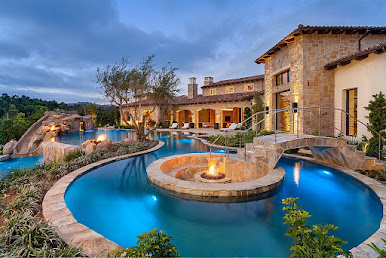Ensuring Safety and Compliance in Your Melbourne Home Pool for A Comprehensive Guide
When it comes to the safety and compliance of your home pool, it's crucial to have a registered building inspector in Melbourne by your side. Your pool's safety not only ensures peace of mind for your family but also helps you comply with local regulations. In this guide, we will delve into the importance of a registered building inspector Melbourne, explore the minimum height for a pool fence, discuss swimming pool compliance inspections, and highlight the role of pool inspectors.
1.
Registered Building Inspector Melbourne
A
registered
building inspector Melbourne is a qualified professional responsible for
assessing the safety, structural integrity, and compliance of various
structures, including home pools. Hiring a registered building inspector is a
critical step in ensuring your pool meets all necessary regulations and
guidelines.
 |
| Swimming pool compliance inspections |
1.1.
Expertise and Qualifications
Registered
building inspectors possess the necessary expertise, qualifications, and
knowledge to evaluate the safety and structural aspects of your pool. They have
been trained and certified to identify potential hazards and areas of
non-compliance.
1.2.
Local Knowledge
In
Melbourne, pool safety regulations can vary based on local ordinances and state
laws. A registered building inspector is well-versed in these regulations,
ensuring your pool adheres to the specific requirements in your area.
1.3.
Preventing Accidents
Accidents
in and around pools can be tragic. A registered building inspector can help
identify potential hazards and recommend necessary safety measures, reducing
the risk of accidents and injuries.
1.4.
Compliance
Compliance
with local building codes and safety regulations is essential. A registered
building inspector ensures your pool meets these standards, helping you avoid
legal issues or fines due to non-compliance.
2.
Minimum Height for a Pool Fence
One
of the most critical safety features of a home pool is the pool fence. The minimum
height for a pool fence is a crucial aspect of pool safety and compliance.
2.1.
Legal Requirements
In
Melbourne, as in many other places, there are specific legal requirements
regarding pool fences. The minimum height for a pool fence is typically 1.2
meters. This height is designed to prevent young children from easily accessing
the pool area unsupervised.
2.2.
Self-Closing and Self-Latching Gates
In
addition to height requirements, pool fences must have self-closing and
self-latching gates. These mechanisms ensure that the gate remains closed and
latched, preventing children from entering the pool area without adult
supervision.
2.3.
Non-Climbable Zone
Pool
fences should also maintain a non-climbable zone. This means that there should
be no objects or structures near the fence that can be used to climb over it.
Maintaining this zone is essential for preventing unauthorized access.
2.4.
Regular Inspections
To
ensure that your pool fence remains compliant with the minimum height and other
safety requirements, it's advisable to have regular inspections conducted by a
registered building inspector. These inspections help identify and address any
issues that may arise over time.
3.
Swimming Pool Compliance Inspections
Swimming pool compliance
inspections are a critical part of ensuring that your home pool meets all
safety and legal requirements. These inspections are typically carried out by
registered building inspectors in Melbourne.
3.1.
Inspection Process
During
a swimming pool compliance inspection, the registered building inspector will
thoroughly assess the pool and its surrounding area. They will check for
compliance with regulations related to the pool fence, gate, pool surface,
water quality, and other safety features.
3.2.
Non-Compliance Issues
If
the inspector identifies any non-compliance issues during the inspection, they
will provide a detailed report outlining the problems and necessary corrective
actions. It is the responsibility of the pool owner to address these issues
promptly.
3.3.
Certificate of Compliance
Once
all issues have been rectified, the inspector will issue a certificate of
compliance. This certificate is essential for proving that your pool adheres to
all safety and legal requirements and may be required for insurance purposes.
4.
Role of Pool Inspectors
Pool
inspectors play a crucial role in maintaining the safety and compliance of your
home pool. Let's explore their responsibilities in more detail.
Initial
Pool Inspections
Pool
inspectors can conduct initial inspections when a new pool is being built. They
will ensure that the pool design and construction comply with local regulations
and safety standards. This is a proactive step to avoid compliance issues in
the future.
Periodic
Inspections
Regular,
periodic inspections are essential for ensuring that your pool remains
compliant over time. These inspections help identify any wear and tear, damage,
or non-compliance issues that may arise as your pool ages.
Pre-Sale
Inspections
If
you plan to sell your property with a pool, a pre-sale inspection by a
registered pool inspector can help you address any non-compliance issues before
listing your home. This can make the selling process smoother and more
attractive to potential buyers.
Renovation
and Modification Inspections
If
you plan to make significant changes or renovations to your pool, a pool
inspector can ensure that these modifications adhere to safety and compliance
standards. This is essential to maintain the safety of the pool area.
Your
home pool is a source of relaxation and enjoyment, but it must also be a place
of safety and compliance. Working with a registered building inspector in
Melbourne is vital to ensure that your pool meets all necessary regulations and
guidelines. This includes maintaining the minimum height for a pool fence,
conducting swimming pool compliance inspections, and having pool
inspectors assess your pool's safety and structural integrity. By
prioritizing safety and compliance, you can enjoy your home pool with peace of
mind, knowing that it's a secure and legal addition to your property.



Comments
Post a Comment